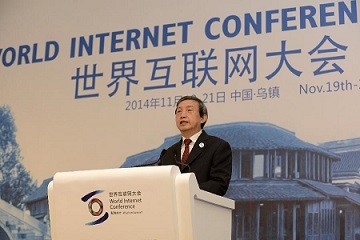Top officials of Zhejiang Province said on Tuesday, Dec. 15, that the Internet has helped spur innovation and accelerate industrial upgrading of many businesses in the province, the Xinhua News Agency reported.
Wu Junqing, deputy director of the Zhejiang Province Economic and Information Commission, said that traditional manufacturers in the province were able to fast-track the pace of industrial upgrading due to the lessons they learned from last year's World Internet Conference.
"With the success of the first World Internet Conference last year, 'Internet' has become a hot word in the province. Information technology is now the main driving force for the industrial upgrading of traditional manufacturing industries," Wu said.
The province accounts for about 11 percent of China's industrial robotics implementation, and is the leader in the segment, Wu added.
According to the report, Jiaxing Getelan Garments Co. Ltd., which used to be a traditional manufacturer of qipao, a traditional Chinese dress for women, has successfully moved up the value chain after the Wuzen-based company saw opportunities brought about by the Internet.
"We started to use the Internet to raise funds, develop distribution channels and have even been crowdfunding our designers since last year," Yao Yunfei, the company founder, said.
With the Internet, designers in Shanghai and other big cities were no longer out of reach, Yao added.
The report said that the company has also developed a 3D human figure scanning and printing system that enables the company to get customers' measures and offer tailoring services online.
Aside from traditional manufacturers, new startups are also showing interest in the high-speed development of the Internet industry.
Zhao Xikai, deputy director of the administrative commission of Zhejiang Hangzhou Future Sci-Tech City, said that their organization, which involves mostly Internet-related startups, has seen great changes since the first conference was held in the province.
"Last year, we helped more than 4,300 people to start their own business and had 14 business incubators with more than 32 billion yuan ($5.1 billion) of investment," Zhao said. "We are confident of having 2,000 startup projects within three years."
Zhao added that the decentralization brought about by the Internet has removed boundaries between sectors.



























